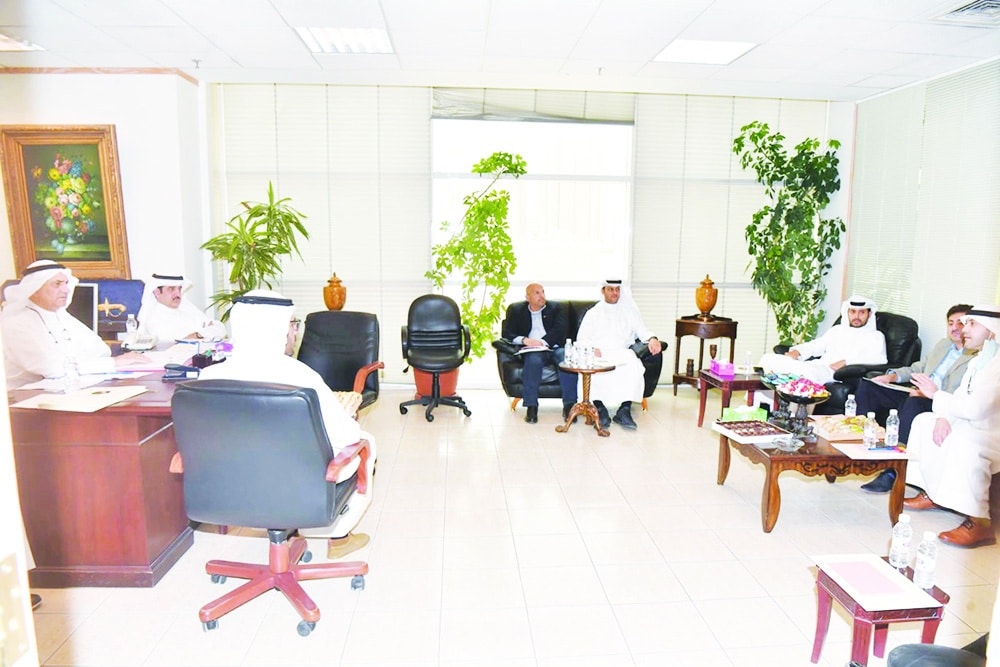By Majd Othman
 Chairman of the union Abdullah Al-Beaijan
Chairman of the union Abdullah Al-BeaijanKUWAIT: The Kuwait Food Union held a press conference on Thursday to discuss the global food crisis and its economic effect on Kuwait. Chairman of the union Abdullah Al-Beaijan said that the Kuwaiti government has taken several urgent measures to prevent the rapid rise in prices of products and foodstuffs, as well as to reduce the severe shortage of supplies after several exporting countries took decisions to stop exporting their goods abroad.
He added that the Council of Ministers recently formed a committee that includes the ministry of commerce and industry, the Ministry of Finance, and several relevant authorities, to maintain Kuwait’s food security, monitor price hikes, and set steps to mitigate the repercussions of the global crisis.
Beaijan indicated that the current crisis is primarily a food supply crisis and not a price hike issue, pointing out that rich countries, which have abundant financial resources, are able to buy their basic needs of medicine, food, and others. “The problem lies in how to provide these products after some countries stopped exporting its goods abroad,” he explained.
In the meantime, Beaijan reassured that a report was submitted to the Cabinet by the Ministry of Commerce, confirming that the strategic stock, based on agreements with exporting countries, guarantees the flow of basic supply commodities until the first quarter of next year.
Regarding the price control law, Beaijan revealed that the Economic Committee in the Council of Ministers and the Ministry of Commerce have great awareness regarding the decision to stabilize prices, clarifying that the government will study the decision during the next two weeks. “Scrapping this law was worthy during the pandemic; however, it has become an obstacle to the movement of trade and import in Kuwait,” he pointed out.
Meanwhile, Beaijan explained the obstacles that Kuwait faces while preventing the effects of global food crisis. “The main problem in Kuwait is the breakdown of the development process over the past years, which has resulted in imbalances in its ability to deal with this kind of crisis,” he said. “The last industrial zone allocated to foodstuffs was distributed 53 years ago in specific areas, which led to price and space control.”
As for sea and land ports, Beaijan indicated that Kuwait suffers from a problem of “outdated” ports that do not keep up with global development, but at the same time charge high prices for clearing goods and handling fees, which negatively affect the prices of imported goods.
On another side, Beaijan mentioned that “negative practices by co-ops are reflected on the final prices offered to the consumers, which include delays in paying to merchants, exorbitant fees for renting its shelves, offering free goods, and not to mention their return policies.”
Meanwhile, Deputy Chairman of the Kuwait Food Union Azara Al-Husaini assured that stakeholders in Kuwait have provided direct and clear support for stock and food security, and therefore there is no need to panic. Regarding the availability of poultry and egg products, Husaini stressed that there is no shortage of poultry, mentioning “but, as a result of the increase in feed prices and the rush to buy by citizens and residents, we are currently suffering from high prices in poultry.”
At the same time, Husaini noted that “local poultry companies cover more than 40 percent of the Kuwaiti market’s need, while the market is currently witnessing a surplus of eggs that exceeds 140 percent of the market’s need.” He added, “the country is currently working to ensure increasing poultry production by providing feed, immunizations and the necessary crews for that.”











